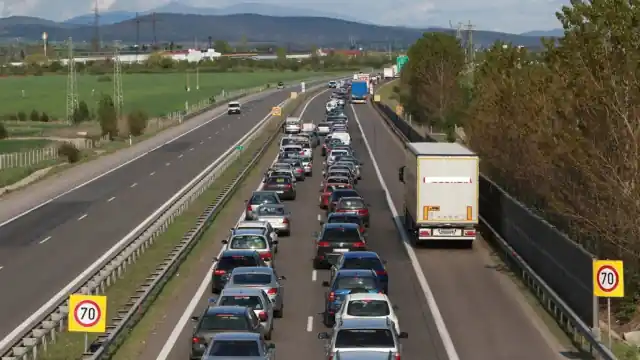
In September, Bulgaria is set to experience a significant travel surge as approximately 350,000 to 380,000 Bulgarians plan trips to take advantage of the long weekend for Unification Day on September 6.
This holiday, falling on a Friday, will extend into a three-day break, prompting many to head to popular destinations both within the country and abroad.
Most travelers are expected to stay within Bulgaria, flocking to favored spots such as seaside resorts, spa destinations, and mountainous regions, or visiting friends and family.
According to Rumen Draganov, director of the Institute for Analyzes and Ratings in Tourism, around 45,000 Bulgarians will venture abroad.
Greece remains a top destination, with approximately 30,000 Bulgarians planning to enjoy their final beach days of the year there.
Halkidiki, in particular, continues to attract many Bulgarians, many of whom own holiday homes in the region.
Additionally, around 10,000 Bulgarians are expected to travel to Turkey, with fewer heading to Serbia, Romania, Macedonia, or Western Europe.
The second long weekend of the month, coinciding with Independence Day on September 22, will see around 320,000 Bulgarians taking trips.
With Independence Day falling on a Sunday and the following Monday as a holiday, many will seize the opportunity for an extended break.
Of these, 280,000 will travel domestically, opting for seaside locales among other destinations.
About 40,000 will travel abroad, with Greece again being the most popular choice, attracting around 25,000 Bulgarians. Turkey will draw approximately 7,000 to 8,000 visitors.
Bulgaria’s tourism industry is witnessing an upward trend in foreign tourism. The country is projected to welcome 13 million international visitors by the end of the year, surpassing pre-pandemic levels.
This marks a significant increase from 12.5 million visitors in 2019, reflecting an additional 500,000 visits. The influx includes tourists from Great Britain, Scandinavia, and Central Europe, with Germans and Romanians being particularly notable.
Domestic travel is also on the rise, with Bulgarians expected to make over 25 million trips within the country this year, exceeding the pre-pandemic figure of 24.8 million.
Bulgarians, numbering around 4.2 million, are traveling an average of 5.7 times annually, including visits to holiday homes or family.
The peak summer season has seen hotels in Sunny Beach fully booked, primarily by foreign visitors. Romanians, Poles, Czechs, and Slovaks are the most frequent tourists, although British and German visitors remain relatively few.
The trend of decreased tourism from Germany and the UK has persisted from the pandemic era, influenced by ongoing geopolitical tensions.
In response to soaring electricity costs, which have tripled for some hotels, the Bulgarian Hotel and Restaurant Association is organizing a protest.
Scheduled for August 27, the demonstration will involve blocking the Burgas-Varna road section leading to Sunny Beach.
Veselin Nalbantov, the deputy chairman of the association, has warned that the high energy prices could lead to potential bankruptcies in the industry if the situation is not addressed promptly.
